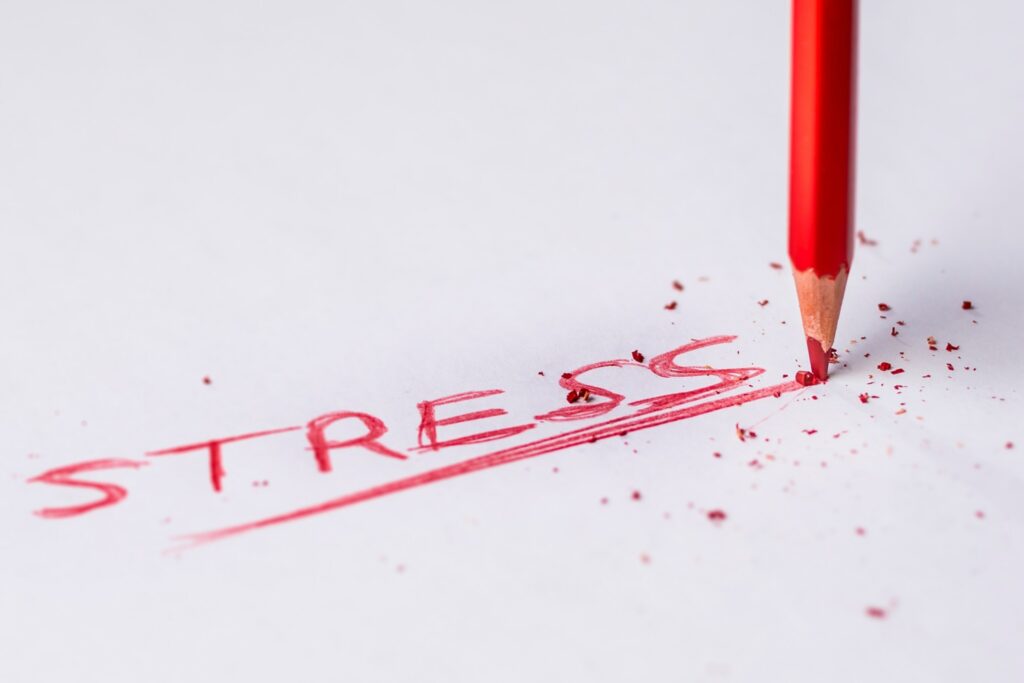When I left for school the first time, no one warned me that I had a 77% chance of developing a mental illness. I only remember one high school teacher telling me anything that even vaguely related to what I might expect in my future as a college student: learn to write notes in shorthand and do not expect professors to slow down their lectures for you. Good advice, but I wish someone warned me about the intense pressure that came with my new environment. This pressure not only brings new challenges to one’s mental health but also increases the symptoms of those already experiencing a mental illness. I hope that by writing this article, I can spread awareness of how these unforeseen changes truly impact students’ mental health. In an effort to show how the college environment can both trigger a mental illness and increase symptoms of someone who already has one, along with sharing my own story and how I received my diagnosis of Obsessive-Compulsive Disorder, I also want to share parts of my friend Christopher Williams’ story. He attended college while already experiencing symptoms of schizophrenia and experienced a significant increase in his symptoms when faced with the pressures brought on by the college environment.
Read on to see how the pressures of college affected our mental health.
We both dealt with the increase in stress differently.

I had absolutely no idea that the pressure had such a profound effect on me that it triggered a mental illness. I remained completely unaware of this for almost three years. I started dropping classes. I took only the minimum needed to keep my financial aid. I still barely managed to pass these. In the second semester of my freshmen year, I discovered my new favorite coping skill and my eventual downfall: marijuana. I spent the next three years using this problematic coping skill to avoid feeling the symptoms of the mental illness I did not know I had. Unbeknownst to me, my OCD symptoms already had a significant effect on my day-to-day life. However, my symptoms did not mimic the stereotypical symptoms that come with OCD, so I never suspected anything, especially a mental illness.
In my conversation with Christopher, he told me that although he went into college already experiencing symptoms, he initially tried to deal with his stress without help. He also had to drop to the minimum number of required courses. He explained that his professors noted that he went from getting all A’s to suddenly failing all his courses.
“My hallucinations make it hard for me to concentrate on the best of days, and then, on the worstdays, I can’t do anything. I mean, they’re debilitating. I was sort of like a perfectionist, so I always wanted to get [good grades], but that, in turn, fed my hallucinations, which in turn made me more sick,” he says.
Because of the pressure causing his grades to drop and his symptoms to increase, he eventually decided to get help through the school’s disability services. They worked with him so he could get extra time on things like tests and quizzes. He said this change made a world of difference.
Our circumstances eventually led us to our diagnoses.

I continued to drop classes, barely pass them and smoke marijuana on a daily basis until my junior year. As I mentioned before, I already experienced symptoms. I just had no idea they were actually symptoms. The primary symptom I had concerned my note-taking. Saying that they had to be perfect is an understatement. I spent (and still spend) hours upon hours writing and rewriting my notes in different pens and in different notebooks. I spent so much time attempting to perfect my handwriting that I never remembered anything I wrote. Then one day, while sitting in French lab, my heart began to race, my vision got blurry and I suddenly felt extremely scared. I grabbed all my stuff and ran out of the room to the nearest restroom, luckily the only restroom at Purdue with couches. I laid down on one and slept until the feeling went away. I had just experienced my first of many future panic attacks. A week later, I found myself sitting in an office with one of the Purdue psychologists. She diagnosed me with OCD.
The pressure eventually got to Christopher, too. He said the pressure “landed [him] in the hospital after the first semester. They diagnosed [him] with schizophrenia, so they actually put [him] on some really good meds that actually helped [him], instead of like kind of scrape the surface.”
We are both stronger now because of our experiences.

As for me, I did end up dropping out at the end of my junior year. I eventually decided to go back to school. I can happily say that I am less than three months from graduating with my master’s degree. It has not been easy. I still deal with my symptoms every day. It takes me longer than a lot of people to do my schoolwork because I still tend to want to perfect my notes. However, this time around, rather than avoiding my mental illness, I have learned to accept it and live with it in a healthy way.
Christopher has come a long way as well. He also ended up dropping out after receiving several certificates. He has mastered control over his hallucinations and spends his time helping others experiencing mental illness through NAMI (National Alliance on Mental Illness). He recently received his certification as a Peer Recovery Specialist. I feel so lucky to know him and have him as a role model.
I hope that by reading this article, you have gained more insight as to how detrimental the pressures of academic life can have on your mental health. Christopher and I are only two examples of students who went on a downward spiral because of our experience. It is unlikely that most of the 77% of students who do find themselves experiencing of a mental illness will find themselves in the same position as me and Christopher did. However, I hope that by sharing our stories, I can bring awareness to how the pressures of academic life can truly affect your mental well-being and the importance of taking care of yourself.



















